12 Things My Children Learned While Worldschooling This Year
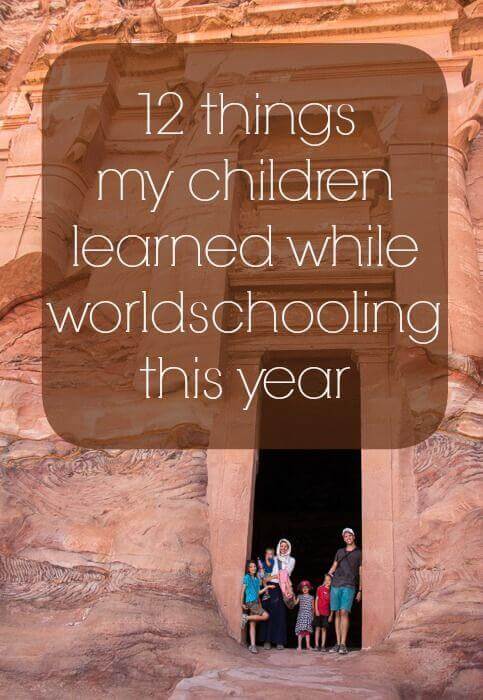
I’m probably my toughest critic.
As we planned for and embarked on this one-year journey around the globe with our young family (kids ages 8, 5 ½, 3 ½ and 11 months at the time of departure), I had high hopes and even higher expectations for what their homeschooling would look like. After all, we were a hard working, determined, classical-education loving family. Certainly we could do this!
Then reality set in. Traveling with four young children is awesome, exhilarating and absolutely worthwhile. Also, it is plain old exhausting.
I knew full well that attempting to experience several countries on every continent while homeschooling, running two family businesses, and simply doing every day life as a family would require a lot, but I just had no idea how much.
Things I didn’t take into consideration were that:
- We would deal with some level of culture shock for the entire year (sure, it ebbs and flows, increases and decreases, but never really goes away).
- Our website, our primary source of income, would be hacked and we would spend literally weeks upon weeks (not to mention countless sleepless nights) dealing with the ramifications as we salvaged our business.
- I packed the biggest medicine kit ever, fully expecting that we would get sick or injured from time to time but four cases of measles, two cases of mumps, extreme stomach issues that occurred repeatedly over two continents, five people, and three months, head lice, and my own sliced-open knee in Africa that required staples and has never healed properly—well, that on top of the anticipated colds, scrapes, sunburns, bug bites, etc. was just a little bit much for me.
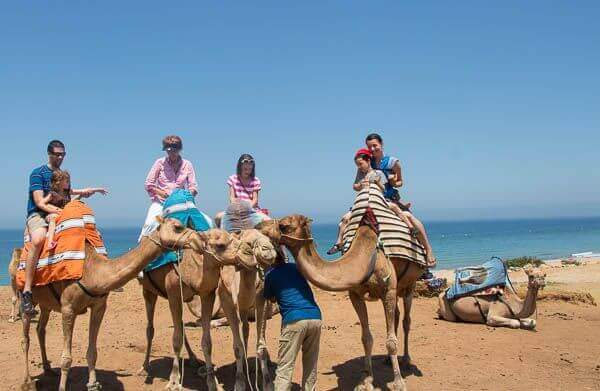
All that to say, school didn’t exactly happen as planned.
Sometimes, it didn’t happen at all.
Which I suppose puts me in the running for “worst homeschooling mom ever” as 2013 winds down.
Except, maybe it doesn’t.
Maybe, just maybe (and I’m preaching to my public-school indoctrinated self as much as to anyone else right now), the lessons and experiences and opportunities and sights and sounds and tastes of this year… maybe those, in and of themselves, were “school” enough.
Let’s take a look, then, at precisely what my children DID learn during a year of worldschooling, since goodness knows the math curriculum got ditched, they certainly didn’t journal everyday, and some days we couldn’t find a sharpened pencil to save our lives.
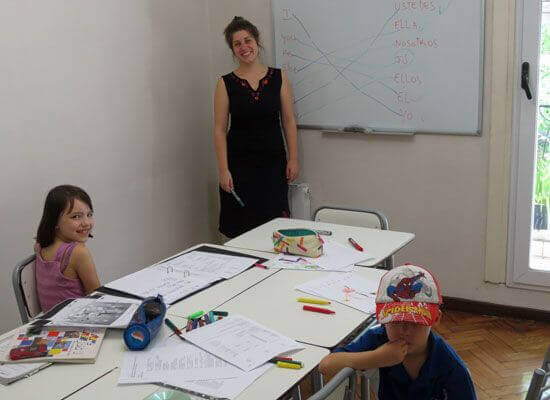
12 things my children learned during a year of worldschooling
1. Four months spent learning Spanish by immersion, not to mention exposure to 10+ other languages.
Our first stop was 3 months in South America, namely Argentina and Uruguay (plus another 5 weeks in southern Spain later on), where we took intensive Spanish lessons for a week, then set about learning to use the language in everyday living. All of the children came away with an increased understanding of Spanish, a fair bit of vocabulary and some basic speaking ability. Our 9 year old daughter, whose pronunciation puts mine to shame, could handle herself in a simple conversation with a Spanish-speaking adult by the end of our time there.
Additionally, our travels allowed us to be exposed to and learn at least a few words and phrases in 10 other languages, including French, Italian, Turkish, Arabic, Kinyarwanda, Swahili, Hindi, Mandarin Chinese, Japanese, and Cambodian. Sure, we’re a far cry from being fluent in any of them, but our ears have become attuned to the linguistic differences and it was excellent practice to learn to greet or thank others, count to 10, ask prices, or identify objects like foods, modes of transportation and the ever-crucial toilet.
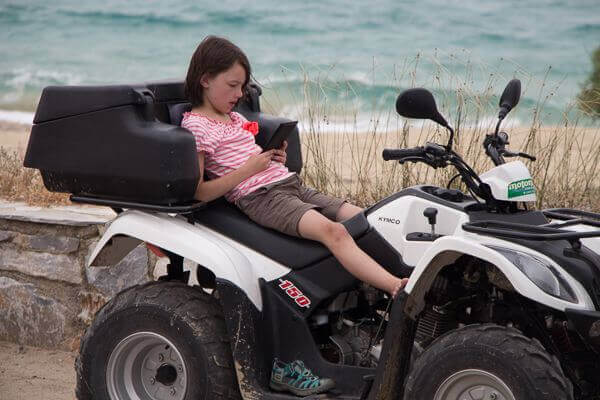
2. Writing an ebook about our experiences.
Our oldest daughter, Abbie, spent much of the spring and summer writing and editing a 40 page ebook entitled “From Argentina to Australia: A Kid’s Perspective on Traveling the World”. So far, the book covers the first 6 months of our travels, and though we initially planned on publishing it as-is, we’ve decided to have her finish it upon our return before we put it up for sale.
Sure, she didn’t keep up with her blog or even a daily journal. But I wonder if the process of writing a book might have been even more valuable, as she learned to brainstorm her ideas, take both big picture and small detail aspects and organize them into a coherent presentation, learn to communicate in an interesting manner (no, you can’t just say it was “fun” or “cool” for the 7th time), put herself in her reader’s shoes, work through the editing and revision process (when you’ve got writers for parents, you don’t get off easy), as well as thinking through pricing, marketing and selling.
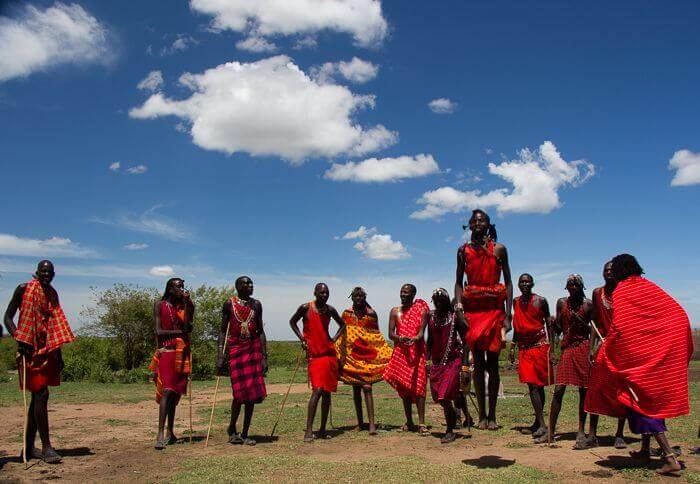
3. Take the best “art appreciation” course ever.
Formal art happened approximately 2 or 3 times all year. But exposure to great art masterpieces, architecture, music, song, dance, calligraphy, and all sorts of other forms of creative expression? Class was in session all. the. time.
The Louvre in Paris. Classical Greek and Roman sculptures, both in situ and some of the best museums in the world. The Sistine Chapel. Walking the streets of southern France where Van Gogh painted. Live Flamenco shows in Spain. Tango in Buenos Aires. Traditional fire, folk and temple dances in India. The Taj Mahal. Astounding acrobatics in China. The Alhambra in Spain. The Hagia Sophia in Istanbul. Beautiful, delicate Islamic art all over the Muslim world.
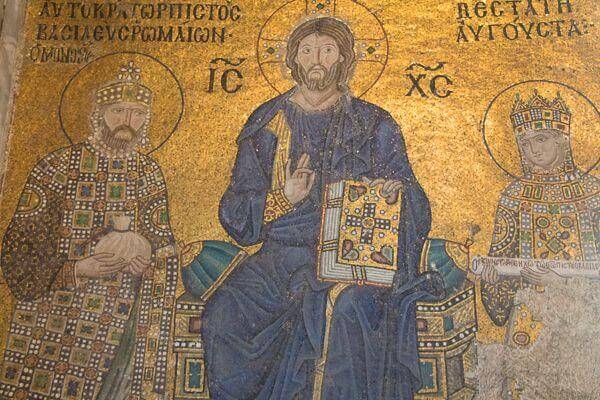
Trying their hand at making mosaics like we saw in Turkey. A classical violin concerto in an ancient chapel in Prague. Watching women doing Tai Chi in city squares or old men writing Chinese characters with long brushes. Walking around the Acropolis in Athens. Moving to the beat of African drums and rhythmic tribal dances.
I’d say we covered art.
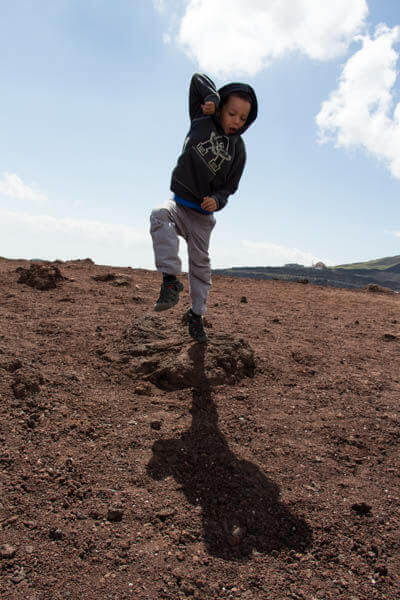
4. Exploring and understanding the flora and fauna of natural habitats.
Though we’ve visited our fair share of big cities and ancient ruins, one of the things that gets our family most enthralled is simply enjoying nature. Some of our favorite outdoor educational experiences included:
- Patagonia (in the southern tip of South America), the “end of the world” where we walked with penguins, saw sea lions, mountains and glaciers, and Daddy even went to Antarctica and brought back pictures and videos of turquoise icebergs and phenomenal whales.
- The sheer natural beauty of Iguazu Falls on the Argentina/Paraguay/Brazil border, which seriously deserves to be a wonder of the world.
- Climbing up active Mount Etna in Sicily and walking inside volcanic craters.
- Hiking among red, yellow, orange and purple-hued hills in southern France
- Swimming (or rather, floating) in the salt-infused Dead Sea
- Rolling down sand dunes in the desert surrounding Dubai
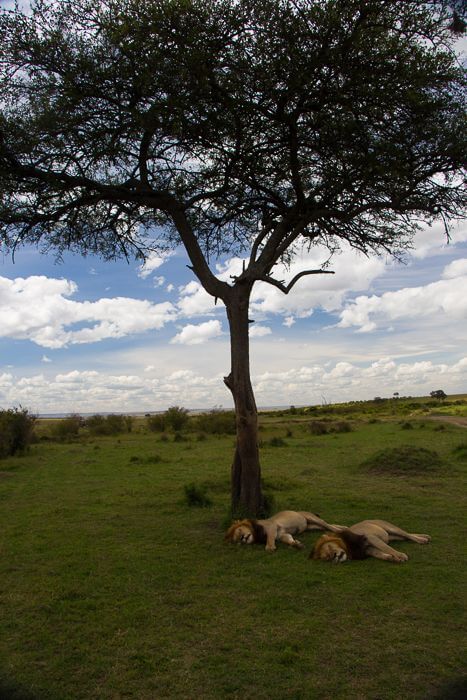
- A 3-day safari in Kenya among elephants, giraffes, zebras, wildebeests, antelopes, gazelles, cheetahs, and lions.
- Exploring the fairy-chimney rock sculptures, underground cities and cave churches of central Turkey’s limestone region.
- A tiger safari in northern India and getting into the foothills of the Himalayas, near the source of the Ganges river
- Still to come—exploring the uniquely shaped karst hills, river valleys, and rice terraces of southern China, and snorkeling at the tropical Great Barrier Reef in Australia.
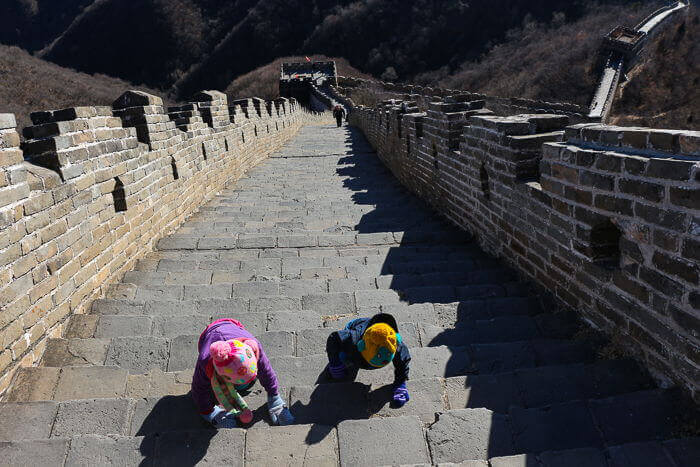
5. Walking in and on ancient ruins—history come alive.
It’s a lot to grasp for a young child, since they can’t yet put it all into context, but we explored as many ancient places as their little minds and attention spans could handle. We did our best to read about, talk about, and listen to information and stories that brought these historic places to life for them.
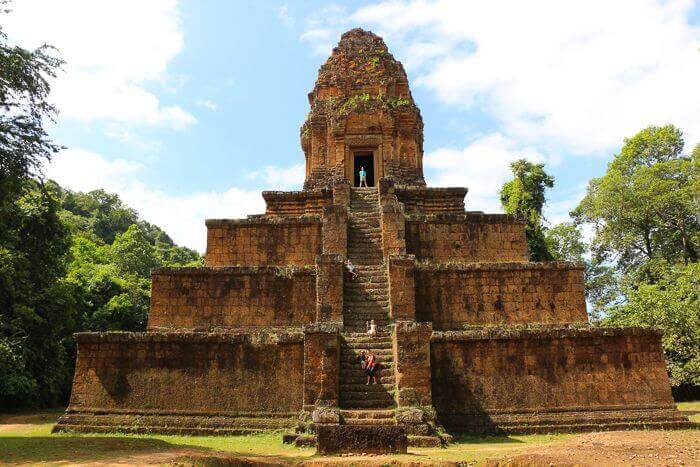
Some of our favorites have included: Incan and other indigenous South American ruins in northern Argentina, the incredibly preserved Roman city of Pompeii, classical Greek sites like the Acropolis and Parthenon, the best preserved Greek theater at Epidavrus, the ruined city of the Myceaneans, pretty much everything in Rome (the Colosseum, the Roman Forum and Palatine Hill, Trevi Fountain, the Baths of Caracalla, the Christian catacombs, I could go on), Byzantine ruins in Turkey, walking inside the Forbidden City and along a portion of the Great Wall in northern China, ancient civilizations in Israel, the rich, ruined Nabatean trading city of Petra in Jordan, and the crumbling and jungle-invaded temples of Angkor Wat in Cambodia.
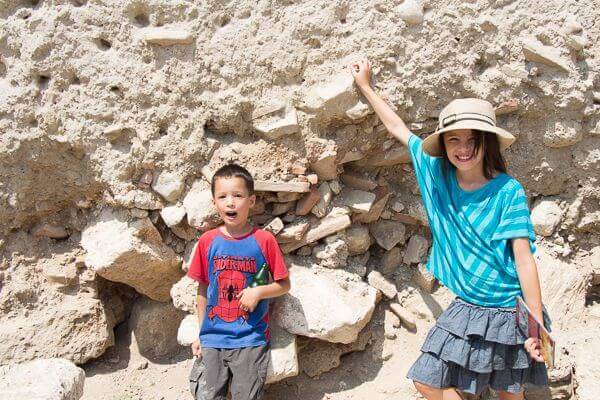
6. Developing a strong interest in archaeology and getting to try it firsthand.
After visiting so many places where the important work of archaeologists was staring us in the face, the children became enthusiastic about how incredible it must be to personally discover, dig through and uncover these rich treasures and world heritage sights. We really wanted to give them a firsthand experience.
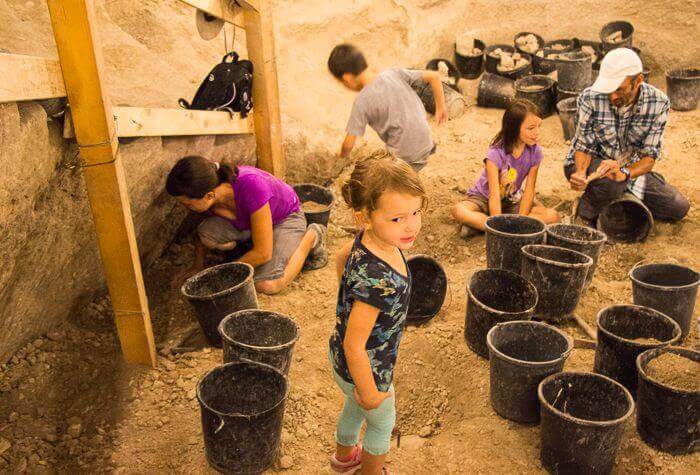
In Israel, we located an organization called Archaeological Seminars that allows children to be an archaeologist for a day. An hour south of Jerusalem, our entire family traveled to Tel Maresha, the site of a 2000 year old city and a current archaeological dig. Together with a team of professional archaeologists, we actually descended down into the earth, with our buckets and trowels, digging up shells and charcoal (remnants of what the people used to eat), nails, pottery shards, and even a jawbone—artifacts that haven’t been seen or touched in 2000 years, and WE were the first people to dig them up.
Our children were floored, and honestly, so were we. We even crawled through a system of caves not yet open to the public. We caught a glimpse of how grueling, tedious, meticulous and yet rewarding the work is. If that doesn’t give us a richer appreciation for history and the ruins and artifacts we’ve viewed all over the world, I don’t know what else could.
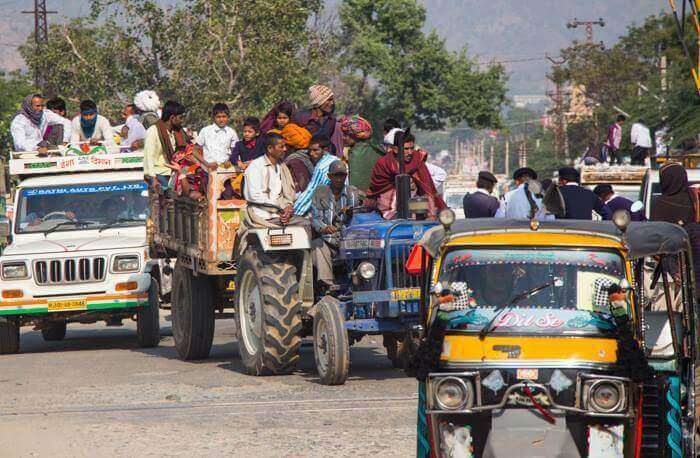
7. Developing a sense of cultural sensitivity.
If we’re being honest, we all lack sensitivity sometimes. We have a predisposition to think our way of doing something is best, or to have a bias towards our own cultural norms. It’s a perpetual and conscious struggle for us as travelers to put aside our preferences and judgments in order to better accept and appreciate the ways of others.
It’s often fascinating to engage in different cultures, and sometimes, it’s downright hard. We wonder why showers don’t have something as simple as curtains that prevent the bathroom floor from being drenched, why people don’t think it’s rude to stare or play loud music until the wee hours of the night, or how a cow can be considered sacred enough that it’s allowed to roam (and poop) all over the streets amidst traffic?
But we’re all learning and growing through this trip, and I can see a greater degree of sensitivity developing in our children. They’ll say things like “Well, I guess they do things different than we do, and that’s OK”. Or after hearing us repeat a hundred times that even if we don’t agree with something, “we’re guests in their country, and so we’re going to do it their way”, now our kids cheerfully pop off with “When in India (or China or Rwanda or Dubai), do as the Indians do!”
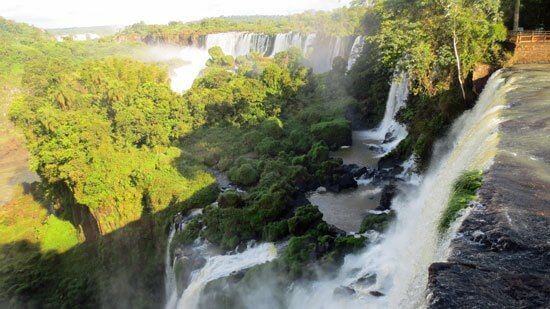
8. Real life skills—traveling, safety, common sense, and all that good stuff.
Backpacking around the world, living in all manner of accomodations, taking every conceivable form of transportation, attempting to eat safely in developing countries, using different currencies and learning to barter, being in close proximity to wild animals or dangerous natural phenomenon…
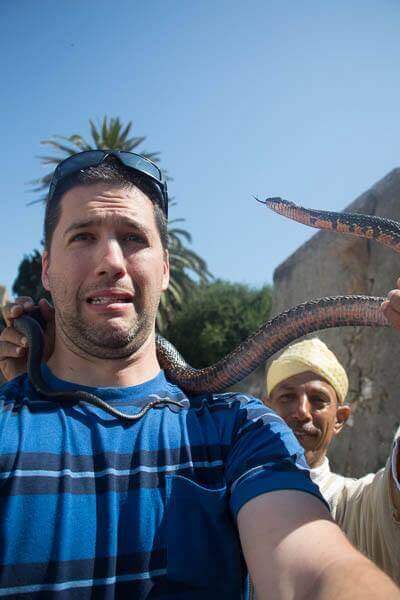
All of these experiences have taught us and our children about being on guard, keeping safety in mind, trusting our instincts, choosing contentment with what we have, keeping our distance from dangers, packing lightly, staying calm, choosing a good attitude even when we’re hot/cold/hungry/tired/sore/thirsty, staying together with the group and looking out for each other, being vigilant, remaining flexible and easy-going in the face of challenges, and probably a hundred other skills that we can’t even put into words.
9. Math. Because it did actually happen.
So formal academics were not a focus during our year. So what? The kids still learned enough in even these areas that I was surprised yet again at how a rich learning environment, the course of time, and the natural curiosity of children will allow education to occur almost effortlessly at times.
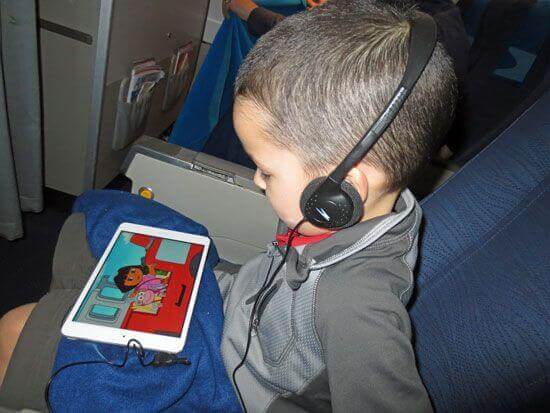
Our son, Caden, started the year barely knowing his numbers. Even without much formal attention, only a few cheap workbooks we picked up along the way (in Spanish, no less) and learning through daily life, he now knows his numbers from 0-30, his addition facts from 1-10, is working on his subtraction facts, and has a good grasp on money and currencies.
Abbie hasn’t kept up with her math curriculum (she got ¾ of the way through the one we brought and it has since been ditched) but she’s been memorizing her times tables, become a total whiz at currency conversion (hello, division and fractions!), played countless math games and drills on our various technological gadgets, mastered time telling and even time zone differences, among other things.
When we get back, we’ll hit up the areas that were lacking this year, but overall, I’m not concerned. Who says you have to learn to calculate the area of a rectangle in Gr. 3 but not do long division until Gr. 5? She’ll get to it all, regardless of when it happens.
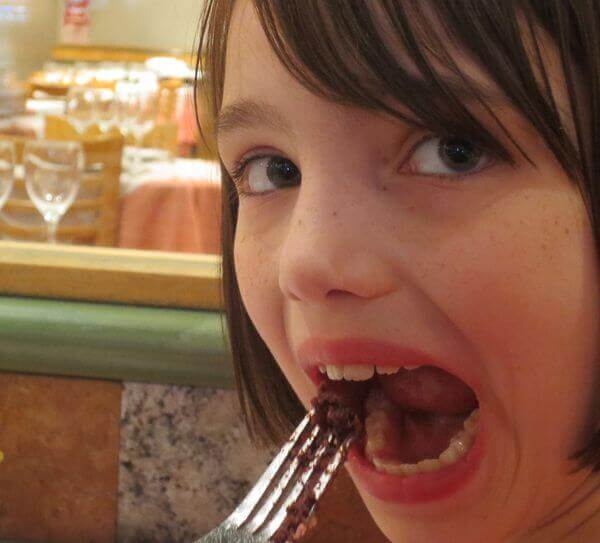
10. A world-class lesson in food and cuisine.
As we spent time roaming in different regions, we quickly learned about the local foods and specialties of each area, by shopping the farmer’s markets, seeing which crops were grown as we traveled through the countryside, sampling the local dishes.
We broadened our own tastes, pushing ourselves to be brave about trying new foods and drinks. Some we liked, others we didn’t, but we found something to enjoy in every place we visited.
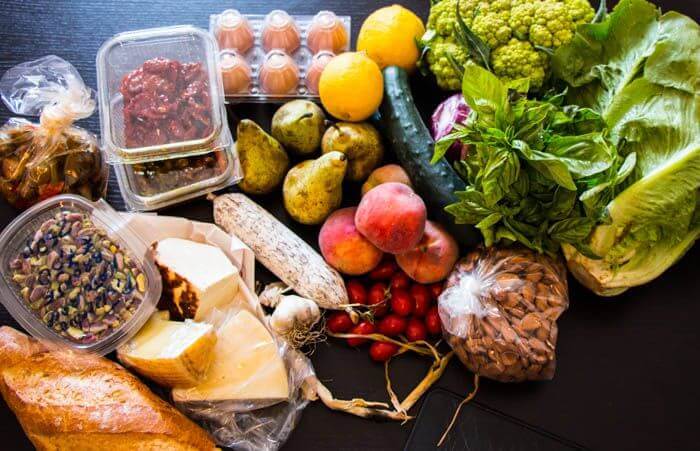
Although we already tried to eat seasonally and locally back home, I think that has been more firmly cemented in us, as we’ve realized that we can eat healthfully and happily no matter where we are by working with what’s fresh and locally available.
Not to mention, seeing how things like olive oil and wine were traditionally made, how honey is harvested, how many different ways you can eat rice, and how to float the bugs out of your dry beans in Africa.
11. Understanding the major religions of the world.
Although our family holds to a Christian worldview, we also believe it is valuable for our children to be familiar with how other people worship and the lens through which they see life. This gives them (and us) insights into their culture, their traditions and practices, how they interact with each other and with their environment, and so much more.
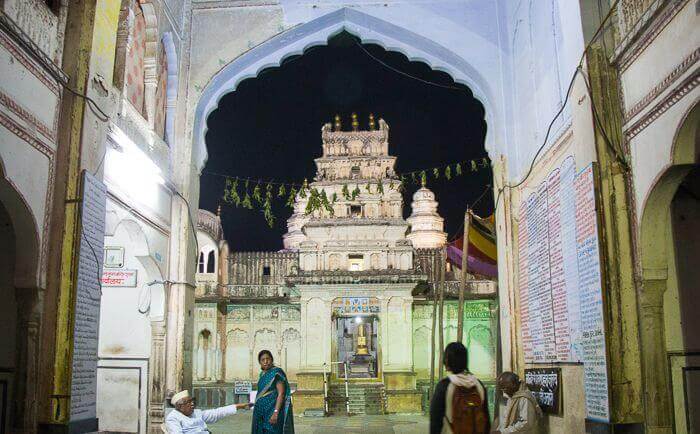
As we’ve traveled, we have come into contact with the people and practices of Catholicism, Orthodox Christianity, Islam, Judaism, Hinduism, Buddhism, as well as tribal forms of worship, like sacrifices, traditional healers, and animism. We’ve seen the good, the bad and the ugly of religion this year.
It’s given us a lot of think about and talk about. We never want to shy away from allowing our children to ask questions and understand other people, and whether we ultimately agree or disagree, we feel richer for having been exposed to the beliefs of others.

12. See both sides and grapple with the big picture of important issues.
During our 3 months in South America, we learned a lot about colonial exploration and expansion, and what it meant for the indigenous people groups. There’s a lot of troubling and not-so-pretty history, and it paints an unfortunate picture for the European superpowers and the colonial era.
And yet, our time in Europe, particularly Spain, gave us the opportunity to look at the other side of the same coin, and talk about how many people sincerely believed that colonialism was the right thing, and in fact, the Europeans left behind important discoveries and developments, infrastructure, brought new skills and foods, among other things.
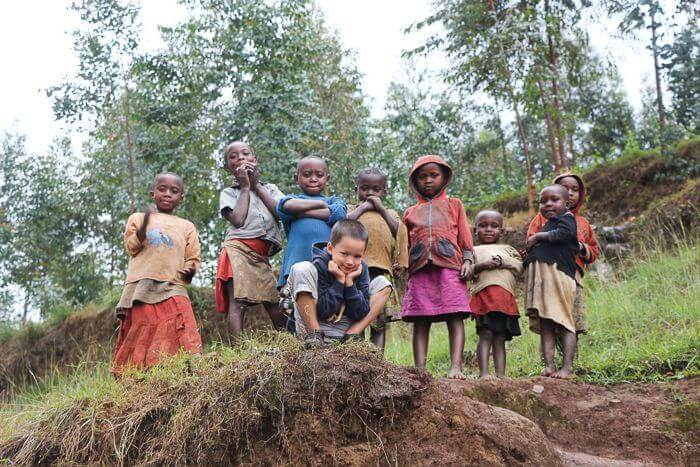
Ultimately, we talked about how history is hardly ever black or white, but always a tapestry of perspectives, worldviews, both good and bad intentions (and good and bad outcomes), misguided zeal, passionate and courageous pursuits that changed the world, and it’s all woven together, for better or for worse. When we seek to understand history, we need to look at ALL of it.
This important truth continued to surface as we traveled in East Africa, the Middle East, India, and now in Asia, and discussed civil wars, genocides, foreign policies, terrorism, styles of government, poverty and aid, and so much more. If our kids can learn this lesson early on, rather than approaching difficult issues with dogmatism and strong biases, they’ll get closer to genuinely understanding people and world history, and certainly much closer to being the type of people that are capable of making a difference in their own unique way.
As we prepare to return home
Sadly, our journey of a lifetime ends in 5 weeks. As we reflect on the astounding wealth of experiences we’ve had, we’ve talked a lot about ways we can continue to keep a “worldschooling” mentality in how we learn and function as a family.
A few areas we plan to prioritize include learning multiple foreign languages, playing “tourist” more often in our own locale, more time exploring the outdoors together, plenty of exposure to the fine arts as well as continued opportunities to flex our own creative muscles, taking up a hobby like taekwondo together as a family, encouraging our kids to work on their own entrepreneurial endeavors, and making a family project of creating photo books that chronicle our year, together with extensively studying those countries as we “re-visit” each stop on our trip.
Will we still sit at the table with workbooks sometimes, or focus on reading, writing and arithmetics? Of course. But I’ve been released from a sense of fear that kept me pinned down to educating in a way that felt safe, and now feel free to educate our children in a way that I know to be rich, challenging, and truly exceptional.
That’s the kind of lifestyle we intend to pursue when we return to Canada. Our trip has opened our eyes to what it means to educate our children more holistically, and what it might mean to live out these values we’ve adopted even once we’re back to suburbia and math lessons, working in an office and waking up to the same town every morning, driving a minivan and mowing the lawn.
Oh yeah… and we’ll keep on traveling.

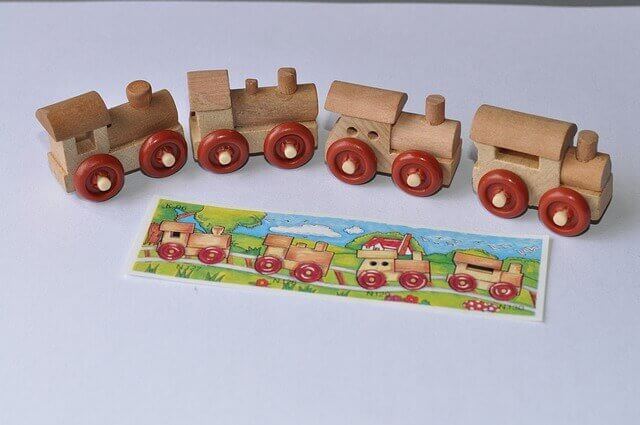
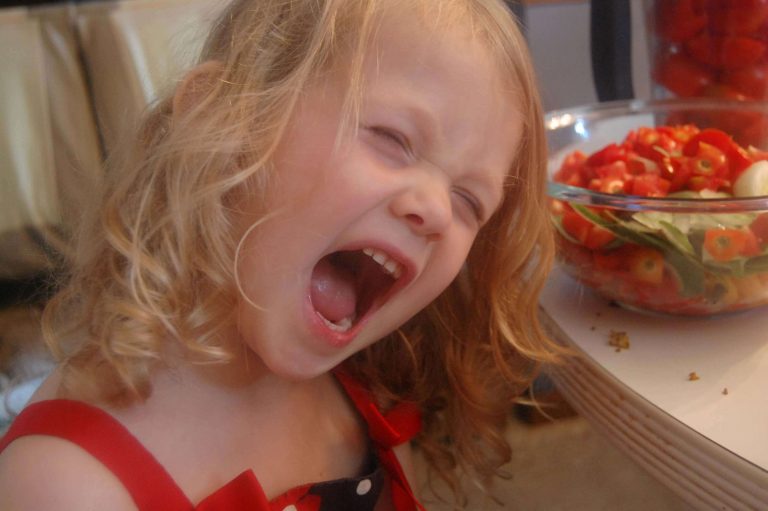
Now that’s education at it’s very best! Way to go!
Well, it sounds as though you covered foreign language(s), language arts, art & music, science, history & “social studies”, religion, health & safety, character building, life skills, and math in a real-world setting, plus a bunch of other stuff you can’t categorize into state-mandated categories. I think experiences are the best education anyone can receive! What an exciting and enriching time of learning for your family.
It was so fun to see all your pictures from what you shared with me over email. Love what God has shown you through your travels. Hah — my husband said he hosted an amoeba convention in his belly when we lived in India!
How fascinating! I can barely get our little crew packed to go on an overnight trip without pulling my hair out. I can not fathom how much planning this adventure required. I’m feeling inspired!
How amazing! Thank you for taking time to share and inspire 🙂
Blessings on you and your family as you adjust to living back in Canada. Thank you for sharing your lives this past year with us. Looking forward to hearing how God continues to bless your family in the days and years to come.
This is SUCH an amazing educational gift you have given your children. I teach in a public school and I can say with certainty that any specific academics missed were MORE than worth it for what your children have experienced.
Such an amazing year! So many memories and the truth that learning isn’t all in a classroom, but in the huge world that God has created!
I simply cannot believe that it has been almost a year already! Are you kidding me? So happy for you and your family to be blessed by this experience. 🙂
Love this! What an incredible opportunity! And what better way to teach your children…seriously!
What an inspirational and comprehensive post!! Your children have learned more through this experience than they ever would have in a traditional classroom!! Different things, yes, but just as valuable!! Sounds like it was HARD, but worth it. Excited to hear more!
Uhh…more like you got “best homeschooling mom EVER”! This is a brilliant way to educate! I was just wondering how thoroughly you planned the trip , and what tools and resources you used to aid in planning your amazing trip!
I was going to say the same thing! 🙂 I don’t think it would have mattered if you hadn’t done one minute of formal, math-workbook-at-the-table type schooling. You would have caught up those things and the lessons you mentioned would have more than made up for any perceived delay 🙂
Thoroughly enjoyed reading this! I’m so glad you did what it took to make these things happen for your family instead of getting caught up with writing updates about it all through. Also, it wouldn’t surprise me if you all did another significant trip when your kids are all teenagers. 🙂
What a well thought out and well written summary of what mattered most to you while worldschooling the kids! Looking forward to some face time with you guys and catching up on a lot more. Can’t wait to hear Abbie and Caden share their perspective and to read Abbies new book when it comes out, not to mention the sheer joy of hearing Jo-Jo’s precious voice or seeing Keplers infectious smile. Love you guys!
how lucky is you and your family to do worldschooling! ia m jealous of it! i wish i coud it too , in greece that i live too. let’s say greekschooling!
I remember how excited I was after I got the first email about your upcoming trip and now it’s nearing completion. It has been fantastic to virtually take this journey with you. Thank you so much for sharing SO MUCH of it with us. I am really looking forward to the release of Abbie’s book! Good for her doing that while also doing all the traveling – she’s like a miniature travel journalist already!
I had no idea what “worldschooling” was just a few months ago, but have so enjoyed seeing reports from families taking this challenge. Thanks for sharing these pics – our kids aren’t school age just yet, but a worldschooling adventure is definitely on our list of big dreams when that time comes! 🙂
I hope you will keep writing about your trip, it’s so fascinating!
Wow! What an amazing experience! Your first post about this back in January 2013 opened me to being willing to travel with our young family–which I was closed to before. We are now planning to head to Guatemala for missions within a year. Thank you for sharing!
As we are preparing I would love if you were able to share more about the medical issues–particularly if you have any information or thoughts on vaccines. Our kids (ages 13 months-11) have had none as of age and its been a point of struggle for me. I have bookmarked your medical kit post and will be referring to that as we prepare as well.
So good to hear an update from you! I really enjoyed your early updates on Entre, but I had NO idea how you were traveling with four children, cooking in a new country, AND blogging on an extra website. Thanks for the summary of the trip! Would love to hear more about your time in Africa!
I haven’t been following your blog for that long, so forgive me if I’m asking a question that you have previously answered. But I was wondering if your children are vaccinated? I read that they got measles and mumps, while travelling, and it made me wonder if they had caught them in spite of vaccinations? Also …. I am currently choosing not to vaccinate my kids (but I constantly review that decision) … so I am REALLY curious as to what your experience was like with measles and mumps. Nobody gets those diseases anymore, so it’s hard to find people who can tell you how bad it actually is! Thanks so much!
Wow, what an experience. I have a 4 year old, 2 year old and baby on the way. I hope to unschool them and loved your post! What an adventure they will never forget!
It seems as though your children learned more through your travels then they would have in school. They experienced what they learned first hand and that is the best way. Great work I think!
What you were able to give your children is so much more than any book, computer or teacher could give them. Even just traveling to one country as a child is eye-opening yet they were able to experience the world. I love how you explained your journeys, your struggles and your triumphs; you are such a captivating writer! I can only imagine how limited your time is but I have truly enjoyed reading about your updates and I can’t wait to hear more.
I just stumbled across your blog, and I think this is such a cool idea! I’m a homeschool kid who just finished high school, and I would have loved to have done something like this! That aside, I just got curious while I was reading this and I hope you don’t mind me asking. How did you afford to travel for a year with your family? I would love to travel for an extended period of time myself, and have been looking for ways to do that financially, so I’d enjoy hearing what worked for you!
Thanks!